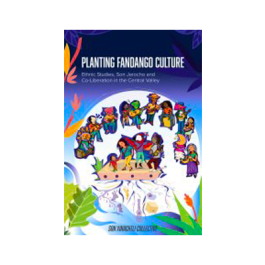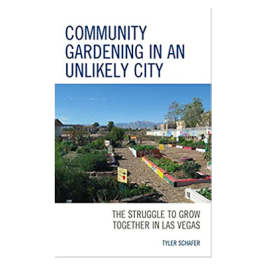
M. Blake Wilson, Ph.D. & Christopher Turner, Ph.D.
After joining the Stan State community in 2017, Professors Blake Wilson (Criminal Justice) and Chris Turner (Philosophy) discovered their mutual fascination with the films of legendary director, actor, author, and provocateur Werner Herzog, and decided to propose volume of collected essays for Lexington Book's Philosophy of Popular Culture series. Until then there had been no sustained effort to gather and present a variety of diverse philosophical approaches to Herzog's films and to the thinking behind their creation. The Philosophy of Werner Herzog collects fourteen essays by professional philosophers and film theorists from around the globe, who explore the famed German auteur’s notions of “ecstatic truth” as opposed to “accountants’ truth,” his conception of nature and its penchant for “overwhelming and collective murder,” his controversial film production techniques, his debts to his philosophical and aesthetic forebears, and finally, his pointed objections to his would-be critics––including, among others, the contributors to this book themselves. By probing how Herzog’s thinking behind the camera is revealed in the action he captures in front of it, The Philosophy of Werner Herzog shines new light upon the images and dialog we see and hear on the screen by enriching our appreciation of a prolific––yet enigmatic––film artist.
In addition to co-editing the book and contributing a chapter, Dr. Wilson also designed its cover, working directly with Herzog's wife Lena Herzog to secure the licensing of her photograph.

Jesse Wolfe, Ph.D.
EnRoute: Poems by Jesse Wolfe
Professor Wolfe earned RSCA funding to expand his debut poetry chapbook, entitled En Route and published in December 2020, into a full-length poetry manuscript. Poets often use chapbooks (roughly half-length volumes) as stepping stones on their way to full-length books, and he followed this route. Beginning in 2018, Professor Wolfe submitted poetry widely to print and e-journals, getting over two dozen acceptances. These provided the backbone for En Route, a work of three sections that focus on individuals, couples, and families who are in the midst of journeys. En Route garnered numerous endorsements. One poet, featured on the back cover, says that this “gorgeous debut collection … investigates the sharper edges of interpersonal relationships, family, loss, and transformation in … exciting, accessible poems.” A review described the poems as “clean and deliberate … there is a sense that every word chosen is the only sufficient word, that every thought is placed in the only possible order, leaving the reader with the feeling that each piece is a recently discovered artifact.” Therefore, say the reviewers, “we highly recommend this chiseled and finely crafted book.” Small, independent presses can always use support, and Professor Wolfe was honored to have his manuscript published by Cathexis Northwest Press.

Daniel Horvath, Ph.D.
Lecturer in Communication Studies
"Truth-Telling and Organizational Democracy: The Rhetoric of Whistleblowing as an Act of Parrhesia" in Whistleblowing, Communication And Consequences. Lessons from the Norwegian National Lottery edited by Peer Jacob Svenkerud, Jan-Oddvar Sornes, and Larry Browning.
October 27, 2020 by Routledge
Whistleblowing, Communication and Consequences offers the first in-depth analysis of the most publicized, and morally complex, case of whistleblowing in recent European history: the Norwegian national lottery, Norsk Tipping. With contributions from the whistleblower himself, an international team of scholars use fourteen different theoretical lenses to provide unique perspectives and insights into not only this fascinating case, but into whistleblowing and wrongdoing in organizations more broadly.

Cueponcaxochitl Moreno Sandoval, Ph.D.
The Transformative Power of Planting Fandango Culture as a Culturally Sustaining Approach to Teaching and Learning at a Public University
Learning son jarocho--an African diasporic and Mexican musical genre born of the colonial experience in the Gulf of Mexico-- at a public university was leveraged as a tool for co-liberation. Drawing from Black feminist theories and Indigenous methodologies, this community-based participatory action research included members of the Son Xinachtli (seed) Collective, comprised of Ethnic Studies and Education faculty and students. We ask: How might the institutionalization of son jarocho impact student voice and community engagement for co-liberation? Using critical auto/ethnographic and storywork analysis to examine three years of son jarocho implementation, findings indicate that planting fandango culture embodies connections to the land and radical love as a source of healing and responsibility. This healing, communal joy of Son Xinachtli planted seeds of community engagement.

Tyler Schafer, Ph.D.
Community Gardening in an Unlikely City: The Struggle to Grow Together in Las Vegas
Community gardening is as much about community as it is gardening, and compared to growing plants, cultivating community is far more difficult. In Community Gardening in an Unlikely City: The Struggle to Grow Together in Las Vegas, Schafer documents his time as a member of a fledgling Las Vegas community garden and the process through which a rotating group of gardeners try to forge community. He demonstrates the ways in which choices gardeners make about what goals to pursue, or who belongs, or what story to tell about their collective efforts, influence how they and others experience and interpret the garden. The garden culture that emerges over time shapes how, or whether, community is practiced at the garden, and has important consequences for the gardeners’ abilities to connect with the low-income, Black and Latinx community in which it is located. Schafer’s analysis provides important insights about urban culture, the environment, and food justice in the American Southwest, and a sober look into the often messy process and practice of community.
Updated: December 23, 2025